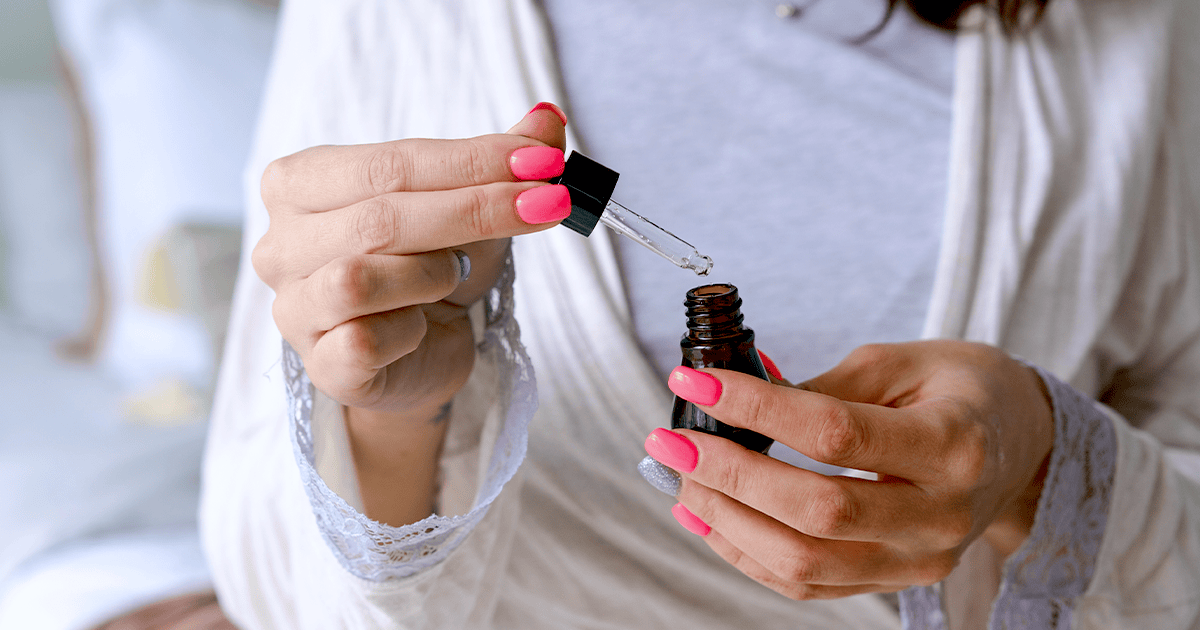When I tested positive for coronavirus, I was worried about the shortness of breath, achingly uncomfortable fevers and painful migraines to come. Loss of taste and smell felt like a minor symptom that I could easily deal with – until I actually experienced it.
It’s not uncommon for upper respiratory infections to affect our senses of smell and taste. In fact, studies have estimated that a temporary loss of taste happens in up to 88% of coronavirus cases.
Still, that doesn’t make the experience of anosmia (smell blindness) any less frightening when you’re skimming your nose over a pan of bubbling food and you can’t detect a single mote of aroma. If this is currently your bleak reality, here are a few things you might be able to relate to…
1. It’s the scariest thing you’ve ever experienced

The first time it dawns on you that your senses have vanished, it’s really hard not to fly off into an uncontrollable panic. There’s nothing more chilling than tucking into a plateful of food and realising that neither the aroma nor the taste is registering; your mouth is completely numb to the experience.
At this point, you might have been isolated for days on end, you’ve probably been bedbound with a fever and food was possibly the only good thing you had going in your life. To have the simple joy of enjoying a buttery round of toast snatched away from you, at this late stage, feels incredibly ruthless.
2. Eating seems pointless

Once your taste buds are out of the game, it’s alarming how quickly your appetite goes out of the window too. Without the reward of flavour, eating turns from a pleasure to a tedious chore.
Mealtimes become some kind of endurance task and food simply becomes very depressing fuel to keep you going through your recovery. You’re praying for the day you can taste chocolate again.
3. You become utterly obsessed with smelling everything in your house

Have you really lost your sense of smell if you haven’t wildly run around the house sniffing everything in sight?
Shampoo bottles. Scented candles. Various strong cheeses from the fridge. Random household items become important apparatus in a daily litmus test to see if you’re making any progress in getting your senses back.
Personally, I had a very distinct low point while trying to exhume some tiny morsel of scent from a chopped garlic clove, while sobbing uncontrollably at the same time. It’s disorientating, to say the least.
4. You even miss the bad smells

You never thought you’d miss the smell of someone in your household passing wind, but these are the times we live in.
5. Texture becomes very important

Once beloved ‘sloppy’ foods like porridge, stews and spaghetti become utterly unbearable, but crunchy crisps, crisp apples and fresh salads? Yes please.
Without the joy of flavour, texture and temperature is the only thing that can bring some vague exciting appeal to mealtimes. Spice is also one of the few things that your mouth can faintly register, so hot sauce will quickly become your best friend too.
Oh, and the bubbles from a cheap fizzy drink suddenly feel like the finest Champagne on the planet.
6. You’re worried you’ll never be able to taste food ever again

I’ve lost my sense of taste before, while getting over a bad cold, but I could rationalise the sensation because of the congestion I could feel in my nose.
With coronavirus, it feels like your taste buds have simply shrivelled up and died, never to return again. It’s hard not to picture a worst case scenario when a quick Google search brings up harrowing tweets from people who haven’t tasted food since their first infection in March.
Deep down, you feel incredibly lucky to have scraped through your coronavirus experience with relatively ‘mild’ symptoms, and you’re desperately thankful that it didn’t turn out worse. However, losing your sense of taste and smell feels so upsetting that it’s hard not to feel utterly bereft when it happens.
7. You realise how important these senses are

There’s no way of sugar-coating it: losing your taste and smell is unfathomably miserable. Until you’ve actually been robbed of these senses, it’s hard to wrap your head around the concept and truly appreciate how distressing it is.
Even when you’re trying to see the funny side by sending your mates videos of you biting directly into a red onion without so much as a wince, you’re silently crying on the inside.
The good news is that a report by the Centers for Disease Control and Prevention (CDC) in America found that the average reported duration of loss of smell or taste was eight days, and another smaller European study found that 98% of people’s anosmia cleared up within 28 days. Basically, it’s a waiting game, but the odds are strongly in your favour that your smell and taste will return.
Until then, you’ll simply have to endure the tasteless food, keep a positive mental attitude and pray for the glorious day that you’ll be able to smell your own body odour again.





